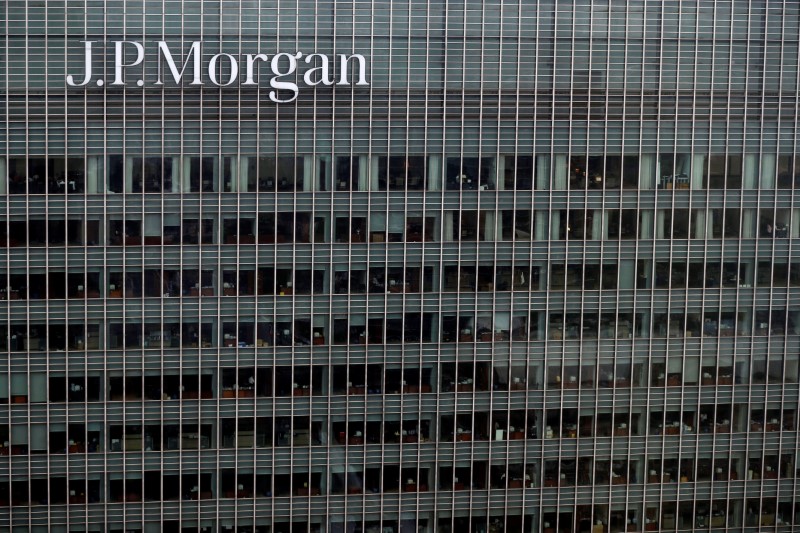The fourth-quarter earnings season has officially started today with major U.S. banks reporting on their performance for the quarter ending December 31.
Overall, JPMorgan (JPM) shares rose following results, contrasting with a decline in Bank of America (BAC) shares. BlackRock (NYSE:BLK) achieved a milestone as its total assets surpassed the $10 trillion mark.
Here's a brief overview of today’s bank earnings.
- JPMorgan concluded the most profitable year in U.S. banking history, marking its seventh consecutive quarter of record net interest income (NII). The bank surprises with a forecast that suggests this lucrative trend may extend into the current year. While shares initially fell on Q4 investment banking revenue miss ($1.58B, cons. $1.72B), the stock turned positive after JPM said it sees 2024 net interest income at $90 billion, easily ahead of the consensus of $86.1B. The stock rose 2.2%.
- In contrast, Bank of America’s results fell short of expectations. The bank is facing reduced profits due to various charges in the fourth quarter, compounded by an unexpected decline in revenue from fixed-income traders. A revenue miss forced shares to trade 2% lower in early Friday trade. Analysts said the bank may "see some NII headwinds."
- Wells Fargo (WFC) experienced higher-than-expected fourth-quarter costs, driven by severance charges and the bank's contribution to replenish the Federal Deposit Insurance Corp.’s main fund following last year's bank failures. Shares slipped 1.6% on modestly lower EPS.
- Citigroup (C) also missed analyst estimates for Q4 revenue ($17.44B, cons. $18.68B), but its stock still rose 2% after the bank said it expects to cut 20,000 jobs in the medium term.
- BlackRock said it witnessed an uptick in client activity during the fourth quarter, with a substantial $63 billion added to ETFs and other products. This surge, coupled with market gains, propels BlackRock's total assets under management (AUM) beyond $10 trillion. Shares were down 0.5% with analysts at Jefferies saying the beat was “modest” while the most active segments “came in below expectations.”
